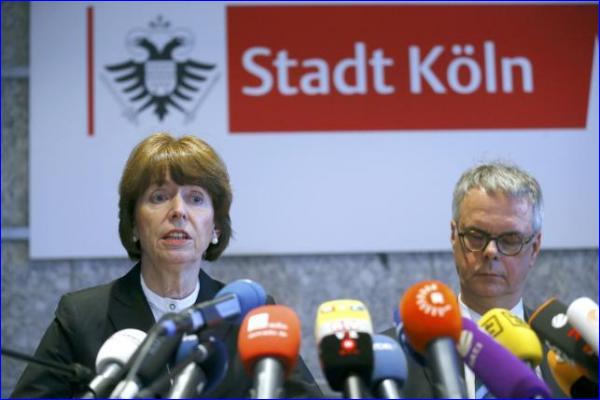


The reports that the perpetrators were hundreds of men of North African and Arabic appearance have unleashed a bitter debate in Germany between those who have linked the event with the massive influx of refugees to Germany in 2015 against those who refuse to link the sexual attacks with the refugee issue.
Can a direct line be drawn between the sexual assaults and refugees? To answer that question, thought should be given to the profile of refugees entering Germany last year. They represent many nationalities: Syrians, Iraqis, Libyans, Moroccans, Algerians, Pakistanis, Bangladeshis, Nigerians and a host of other nationalities. The diverse nationalities involved suggest that it would be impossible to link the sexual attacks with a particular national grouping.
What if we divide refugees along religious lines? The majority of refugees are Muslim by faith, but there are also Christians, Yazidis and other minority religious groups. Such a consideration carries us forward; it is virtually certain that the perpetrators of the New Year's Eve attacks on women were not Christian, Yazidi or other religious minority refugees.
That leaves the majority of refugees in the spotlight, who are Muslim. It is equally certain that many Muslims would have been as appalled by the attacks as were non-Muslim Germans. So we can safely conclude that many Muslim refugees would have shunned such sexual assaults on German women.
However there is a subset of Muslims who should be regarded with suspicion: Islamists, determined to foister Islam upon non-Islamic communities and who regard the West with hostility.
It is at this point that we identify the prime suspects. This whole sorry event should not be linked with refugees per se but should rather be linked with Islamists, some of whom are refugees but many of whom have German nationality and are descended from earlier Muslim migrants to Germany. So the issue is less about refugees and is more about radical Islamism.
Radical Islamists read straight from the page of their sacred texts to the modern world. When the Islamic sacred texts speak in a demeaning fashion about women -- as they do in many places -- radical Islamists are encouraged to demean women, especially those who are non-Muslim: Christian Arabs, Yazidis, Christian Westerners -- and secular Westerners, such as young German women engaging in revelry on New Year's Eve.
Such demeaning attitudes to non-Muslim women among radical Islamists explain many of the horrifying stories of recent years: the kidnapping and concubinage of Christian girls by Muslim men in Pakistan and Egypt; the kidnapping of hundreds of Christian women and girls in Nigeria; the increasing numbers of rapes of Western women in Europe by Muslim gangs. Most of these stories have been largely ignored by the Western press. Rapes and grooming of young white girls here in England were reported in the media but the perpetrators were euphemistically described as "Asian"; the fact that they were Muslim was too sensitive to report, it seems.
It is right for the authorities to discourage an automatic linkage between the recent sexual assaults in Germany and refugees per se. However, more transparency is needed in drawing the link between the assaults on women and radical Islamists in Germany, some but not all of whom would have been refugees.
With regard to the future, Europeans should prepare themselves for more of these kinds of challenges to their way of life. The refugee influx is serving to grow Muslim minority populations. So the proportion of those populations which is radical Islamist will also grow. Hostile Islamist groups will be increasingly assertive in years to come, using both overt and covert strategies to destabilise European societies. In order for such challenges to be overcome, a new generation of European political and social leaders will be needed, one which has more courage and vision then those European leaders of recent years who have been in a state of denial as Europe has sleepwalked into its current social crises.
Guest Editorial Policy

or register to post a comment.